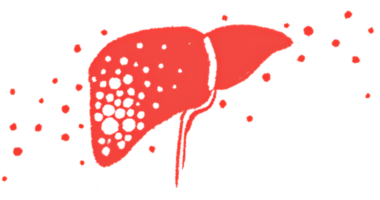Watching My Son Cope With the Aftermath of Hemophilia Trauma
When navigating the effects of trauma proves just as difficult as enduring it

I thought the worst days were behind me in helping my youngest son navigate his bleeding disorder. Caeleb is 16 years old and a junior in high school. During his younger years, an inhibitor wreaked havoc on my son, causing extreme complications and joint bleeds that took an extended time to resolve. Those years were filled with great physical pain.
Night after night, I held vigil with my son in the hospital, trying to help ease his pain. I used everything from games on the Wii, an iPad with YouTube, and Legos to distract Caeleb. But unfortunately, these methods did not always work. Monitoring the time between morphine doses and using a Cryo Cuff cold therapy machine every 20 minutes was exhausting but necessary.
Those days were heartbreaking. Surely, it couldn’t be worse.
After years of complications, Caeleb began to improve. However, his knee and ankle suffered significant damage. Due to excessive joint bleeding, Caeleb now lives with hemophilic arthropathy. But despite a stiff leg and ankle, life was still much better, thanks to a new medication, Hemlibra (emicizumab-kxwh), that gave my son a new lease on life without regular bleeds.
As Caeleb began high school and became more active, hemophilic arthropathy became a more serious issue. The pain he endures with the aching of his joints and the bones rubbing together is often too much to bear. At least once a week, I pick him up early from band practice because he’s exhausted from the pain.
I’m watching my son change. His frustration and anxiety are on the rise due to the pain. He also struggles with mobility, often using a cane. Seeing a teenager use a cane is not something the world expects. His outgoing personality is now hindered because he wants to get home and off his feet. I want him to be active, but how?
I recently picked Caeleb up early from practice, and on my way to school, I called the hemophilia treatment center in frustration. I’m not sure why I called, because there’s nothing that they can do. He’s going to physical therapy and taking medication, which seems to be in vain. I want more for my son.
I thought getting through long, painful nights at Caeleb’s bedside, scooping him up from the bed to take him to the restroom, going to the playground in a wheelchair, and watching nurses restrain him for an IV placement were the worst of times. Seeing his spirit broken because of all that’s happened is the aftermath I never expected.
I don’t want my son to simply exist by playing computer games with friends. I want him to be out in the world with his friends.
Right now, it’s all about taking one day at a time, moment by moment, and even breath by breath. No matter what it takes, I’ll be there for Caeleb.
Note: Hemophilia News Today is strictly a news and information website about the disease. It does not provide medical advice, diagnosis, or treatment. This content is not intended to be a substitute for professional medical advice, diagnosis, or treatment. Always seek the advice of your physician or another qualified health provider with any questions you may have regarding a medical condition. Never disregard professional medical advice or delay in seeking it because of something you have read on this website. The opinions expressed in this column are not those of Hemophilia News Today or its parent company, Bionews, and are intended to spark discussion about issues pertaining to hemophilia.








Leave a comment
Fill in the required fields to post. Your email address will not be published.